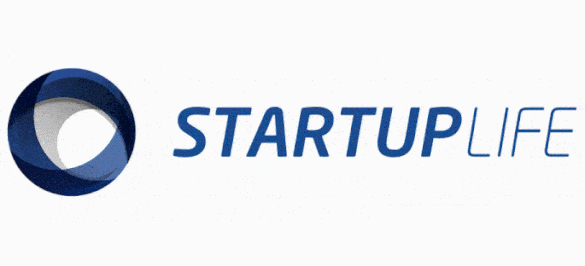The Brazilian financial market has been undergoing significant transformations in recent years, especially with the introduction of new technologies and regulations. One of the most impactful innovations is eFX, or Electronic Foreign Exchange, an electronic system for foreign exchange operations that is revolutionizing how currency transactions are conducted in Brazil. This article offers a detailed look at what eFX is, its operation, benefits, and an in-depth analysis of the key regulations that govern it.
Content:
What is eFX and how does it work?
eFX is an electronic platform that facilitates the buying and selling of foreign currencies through automated systems. It allows financial institutions and other authorized entities to perform foreign exchange operations quickly and efficiently, using digital interfaces that connect directly to the Central Bank’s system.
Transactions via eFX are processed almost instantaneously, which reduces the time and costs involved in traditional foreign exchange operations. Market participants can access real-time quotes, place buy and sell orders, and complete transactions with greater speed and security.
Benefits of eFX
The adoption of eFX brings a series of benefits to the financial market and end-users:
- Efficiency and Speed: Electronic transactions are processed in real-time, significantly reducing the time required to complete foreign exchange operations.
- Transparency: The use of digital platforms allows for greater visibility of operations, making monitoring and oversight by regulatory authorities easier.
- Security: eFX uses advanced security protocols to protect data and transactions, minimizing the risk of fraud and errors.
- Reduced Costs: The automation of foreign exchange processes can lower operational costs for financial institutions and, potentially, for consumers.
Regulations and Detailed Analysis of eFX Norms
To ensure the security and effectiveness of the eFX system, the Central Bank of Brazil has established a series of norms that regulate its operation. Below is a deeper analysis of some of the key regulations:
BCB Resolution No. 137:
- Objective: This resolution establishes the necessary operational and technological requirements for financial institutions to participate in eFX, promoting efficiency and security in electronic foreign exchange transactions.
- Key Points:
- Internal Control Systems: Institutions must implement robust internal control systems to ensure the integrity of operations. This includes creating strict internal policies and implementing continuous monitoring and auditing technologies.
- Cybersecurity: The use of cutting-edge technology is mandatory to ensure protection against fraud and cyber-attacks. This involves adopting advanced encryption, multi-factor authentication, and other information security measures.
- Real-Time Transactions: Platforms must be capable of performing real-time transactions, ensuring the agility of the foreign exchange market. This requires a technological infrastructure that supports high speed and a large volume of transactions.
BCB Resolution No. 148:
- Objective: Defines the guidelines for the operation of electronic foreign exchange, ensuring that transactions conducted through eFX follow strict compliance and security standards.
- Key Points:
- Eligibility Criteria: Establishes the eligibility criteria for financial institutions to participate in the eFX system. Institutions must prove their technical and operational capacity to perform foreign exchange operations safely and efficiently.
- Compliance Standards: Defines the compliance standards that must be followed, including the adoption of international information security practices. Institutions must implement policies and procedures to ensure regulatory compliance.
- Operational Transparency: Mandates transparency in operations, with periodic reports sent to the Central Bank. These reports must include detailed information about the transactions carried out, helping to ensure the integrity of the foreign exchange market.
CMN Resolution No. 4942:
- Objective: Addresses the necessary conditions for the implementation and operation of electronic foreign exchange systems, ensuring that the platforms used comply with Central Bank regulations and provide a secure environment for transactions.
- Key Points:
- Certification of Systems and Platforms: Requires the certification of foreign exchange systems and platforms by recognized entities. This ensures that the technologies used meet the required security and efficiency standards.
- Audit and Oversight Procedures: Defines the procedures for auditing and overseeing foreign exchange operations. Institutions must undergo periodic audits and maintain detailed transaction records to facilitate oversight.
- Operational and Market Risk Assessment: Establishes criteria for assessing operational and market risks. Institutions must adopt measures to identify, evaluate, and mitigate risks associated with foreign exchange operations.
Circular No. 3691:
- Objective: Establishes specific rules on the internal procedures and controls that financial institutions must adopt when conducting foreign exchange operations through eFX, including audit and reporting requirements.
- Key Points:
- Internal Control and Audit Systems: Mandates the implementation of internal control and audit systems that ensure regulatory compliance. Institutions must develop and maintain robust internal control policies and procedures.
- Reports to the Central Bank: Defines the frequency and format of reports to be sent to the Central Bank. These reports must provide a detailed view of the foreign exchange operations conducted, helping to ensure transparency and market integrity.
- Contingency Plan: Establishes the need for a contingency plan for operational failures. Institutions must be prepared to respond quickly to interruptions and minimize the impact on operations.
Resolution No. 3568:
- Objective: Regulates general aspects of foreign exchange operations in Brazil, including guidelines for conducting electronic transactions, promoting the modernization and security of the foreign exchange market.
- Key Points:
- Rules for Individuals and Legal Entities: Defines the rules for foreign exchange operations by individuals and legal entities. This includes necessary documentation, operational limits, and procedures to be followed.
- Operational Limits: Establishes operational limits for different types of foreign exchange transactions. This helps ensure that operations are conducted safely and within regulatory parameters.
- Standardization of Operational Procedures: Promotes the standardization of operational procedures in the foreign exchange market. Institutions must adopt consistent practices aligned with regulations to ensure the efficiency and security of operations.
eFX Implementation and Market Impact
The implementation of eFX in Brazil represents a significant advancement in the modernization of the foreign exchange market. Financial institutions have been investing in technology and training to adapt to the new requirements and take advantage of the opportunities offered by electronic foreign exchange. For consumers, eFX promises a more agile, secure, and cost-effective experience when conducting international transactions.
The adoption of eFX is also aligned with global trends in the digitalization of financial markets. In an increasingly connected world, the ability to conduct foreign exchange transactions quickly and efficiently is essential for companies operating internationally. eFX facilitates these operations, making the Brazilian foreign exchange market more competitive and integrated into the global financial system.
Furthermore, the transparency and security provided by eFX help to attract foreign investment, as international investors seek markets where they can operate with confidence. The strengthening of regulations and the implementation of advanced security technologies contribute to creating a more stable and attractive business environment.
Challenges and future outlook
Despite the benefits, the implementation of eFX also presents challenges. One of the main challenges is the need for a robust technological infrastructure. Financial institutions must invest significantly in technology to ensure their platforms can handle the volume and speed of transactions required by eFX. This includes acquiring advanced hardware, implementing state-of-the-art software systems, and hiring qualified IT professionals.
Another challenge is adapting to new regulations. Financial institutions must ensure that all their processes and procedures comply with the standards established by the Central Bank. This may require significant changes in internal operations and organizational culture. Additionally, the need for periodic reports and internal audits can increase the administrative burden and operational costs.
However, the trend is for the market to continue evolving, with new innovations and improvements that will make the system even more efficient and accessible. As more institutions adopt eFX and invest in technology, costs are expected to decrease and efficiency to increase. Future innovations may include the use of artificial intelligence to improve transaction accuracy and fraud detection, as well as integration with other emerging financial technologies, such as blockchain.
eFX is transforming the Brazilian foreign exchange market, offering an electronic platform that brings efficiency, security, and transparency to foreign exchange operations. With clear regulations and an increasingly digitalized financial market, Brazil is well-positioned to benefit from the innovations brought by electronic foreign exchange.
The Central Bank of Brazil has played a crucial role in this process, establishing the necessary guidelines to ensure the integrity and efficiency of eFX. Through robust regulations and a proactive approach to promoting innovation, the Central Bank is helping to build a modern and resilient foreign exchange market.
For financial institutions, adopting eFX represents an opportunity to enhance their operations and offer a higher quality service to their clients. For consumers, eFX offers a faster, more secure, and cost-effective way to conduct foreign exchange transactions. Ultimately, the success of eFX will depend on the continuous collaboration between regulators, financial institutions, and other stakeholders to foster an environment of innovation and trust in the Brazilian foreign exchange market.
For further information regarding our M&A services, get in touch:











